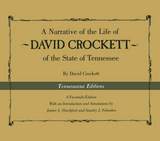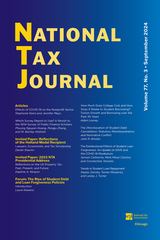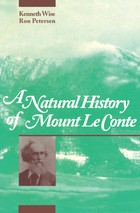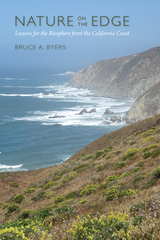4 start with W start with W

From the author of the New York Times bestseller Begin Again, a politically astute, lyrical meditation on how ordinary people can shake off their reliance on a small group of professional politicians and assume responsibility for what it takes to achieve a more just and perfect democracy.
“Like attending a jazz concert with all of one’s favorite musicians…James Baldwin, Martin Luther King, Jr., Malcolm X, Ella Baker, Toni Morrison, and more…Glaude brilliantly takes us on an epic tour through their lives and work.”
―Henry Louis Gates, Jr., author of The Black Box: Writing the Race
We are more than the circumstances of our lives, and what we do matters. In We Are the Leaders We Have Been Looking For, one of the nation’s preeminent scholars and a New York Times bestselling author, Eddie S. Glaude Jr., makes the case that the hard work of becoming a better person should be a critical feature of Black politics. Through virtuoso interpretations of Martin Luther King, Jr., Malcolm X, and Ella Baker, Glaude shows how we have the power to be the heroes that our democracy so desperately requires.
Based on the Du Bois Lectures delivered at Harvard University, the book begins with Glaude’s unease with the Obama years. He felt then, and does even more urgently now, that the excitement around the Obama presidency constrained our politics as we turned to yet another prophet-like figure. He examines his personal history and the traditions that both shape and overwhelm his own voice.
Glaude weaves anecdotes about his evolving views on Black politics together with the writings of Ralph Waldo Emerson, John Dewey, Toni Morrison, James Baldwin, and Ralph Ellison, encouraging us to reflect on the lessons of these great thinkers and address imaginatively the challenges of our day in voices uniquely our own.
Narrated with passion and philosophical intensity, this book is a powerful reminder that if American democracy is to survive, we must step out from under the shadows of past giants to build a better society—one that derives its strength from the pew, not the pulpit.
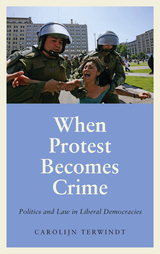
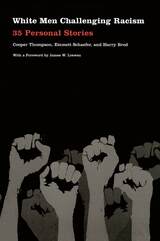
Ranging in age from twenty-six to eighty-six, the men whose stories are presented here include some of the elder statesmen of antiracism work as well as members of the newest generation of activists. They come from across the United States—from Denver, Nashville, and San Jose; rural North Carolina, Detroit, and Seattle. Some are straight; some are gay. A few—such as historian Herbert Aptheker, singer/songwriter Si Kahn, Stetson Kennedy (a Klan infiltrator in the 1940s), and Richard Lapchick (active in organizing the sports community against apartheid)—are relatively well known; most are not. Among them are academics, ministers, police officers, firefighters, teachers, journalists, union leaders, and full-time community organizers. They work with Latinos and African-, Asian-, and Native-Americans. Many ground their work in spiritual commitments. Their inspiring personal narratives—whether about researching right-wing groups, organizing Central American immigrants, or serving as pastor of an interracial congregation—connect these men with one another and with their allies in the fight against racism in the United States.
All authors’ royalties go directly to fund antiracist work. To read excerpts from the book, please visit http://www.whitemenchallengingracism.com/
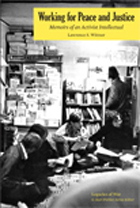
A longtime agitator against war and social injustice, Lawrence Wittner has been tear-gassed, threatened by police with drawn guns, charged by soldiers with fixed bayonets, spied upon by the U.S. government, arrested, and purged from his job for political -reasons. To say that this teacher-historian-activist has led an interesting life is a considerable understatement.
In this absorbing memoir, Wittner traces the dramatic course of a life and career that took him from a Brooklyn boyhood in the 1940s and ’50s to an education at Columbia University and the University of Wisconsin to the front lines of peace activism, the fight for racial equality, and the struggles of the labor movement. He details his family background, which included the bloody anti-Semitic pogroms of late-nineteenth-century Eastern Europe, and chronicles his long teaching career, which comprised positions at a small black college in Virginia, an elite women’s liberal arts college north of New York City, and finally a permanent home at the Albany campus of the State University of New York. Throughout, he packs the narrative with colorful vignettes describing such activities as fighting racism in Louisiana and Mississippi during the early 1960s, collaborating with peace-oriented intellectuals in Gorbachev’s Soviet Union, and leading thousands of antinuclear demonstrators through the streets of Hiroshima. As the book also reveals, Wittner’s work as an activist was matched by scholarly achievements that made him one of the world’s foremost authorities on the history of the peace and nuclear disarmament movements—a research specialty that led to revealing encounters with such diverse figures as Norman Thomas, the Unabomber, Zbigniew Brzezinski, Caspar Weinberger, and David Horowitz.
A tenured professor and renowned author who has nevertheless lived in tension with the broader currents of his society, Lawrence Wittner tells an engaging personal story that includes some of the most turbulent and significant events of recent history.
Lawrence S. Wittner, emeritus professor of history at the University at Albany, SUNY, is the author of numerous scholarly works, including the award-winning three-volume Struggle Against the Bomb. Among other awards and honors, he has received major grants or fellowships from the National Endowment for the Humanities, the American Council of Learned Societies, the Aspen Institute, the United States Institute of Peace, and the John D. and Catherine T. MacArthur Foundation.
READERS
Browse our collection.
PUBLISHERS
See BiblioVault's publisher services.
STUDENT SERVICES
Files for college accessibility offices.
UChicago Accessibility Resources
home | accessibility | search | about | contact us
BiblioVault ® 2001 - 2024
The University of Chicago Press


